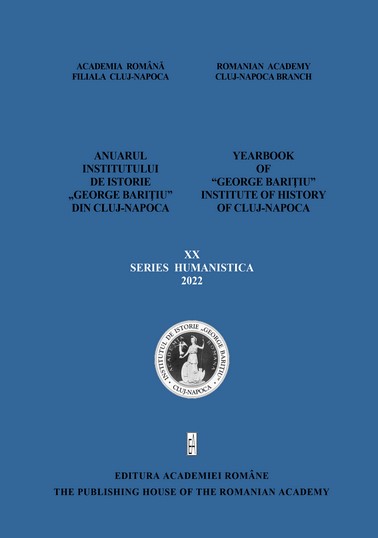ACT ȘI INTERACȚIUNE (INTER-AFECTIVITATE)
ACT AND INTERACTION (INTER-AFFECTIVITY)
Author(s): Daniel SasSubject(s): Philosophy of Mind, Philosophy of Language, Phenomenology
Published by: Editura Academiei Române
Keywords: Act; Affect; Depression; Imaginary; Unconsciousness; Inter-Affective; Inter-Corporeal; Intentionality; Intersubjective; Language; Pre-Reflexive; Symbolic;
Summary/Abstract: Language is both (generator of) language and affect at the same time; we understand, thus, that there exists an intimate link between the two. Aristotle’s Rhetoric demonstrates this coupling: the affect needs a symbolic justification. Obviously, one has to distinguish between so-called imaginary affects and symbolic affects. Can one speak, in the case of the human subject, about a type of communication that takes place exclusively in the imaginary register? What is the symbolic justification of the subject's affective disposition – is not anxiety, trust, astonishment the spring of the speech act? We become, after saying intersubjectivity, intercorporeality or interaffectivity –in a word, interaction –, sensitive to that prefix (inter), which seems to point to a mysterious mediating element that is capable of linking distinct consistencies. Intersubjectivity presupposes the existence of at least two already constituted subjects (whatever their nature). But isn't the relationship always already given (as an originary phenomenon), in the sense that it is impossible to conceive the subject outside of this relationship – introjected as a psychic structure? In other words, the above-mentioned prefix implies an interdependence, as well. In the same order of ideas, intercorporeality or interaffectivity presupposes the existence of at least two lived bodies or affective dispositions that are already constituted, i.e. established in an intimate interconnection. The particle in question also reveals the presence of a medial (transcendental) domain – an activity that is demonstrable and sensitive through its effects. Thanks to modern science, we have gained a vast knowledge of the nature of the object, the value of which is confirmed by its (this knowledge’s) ability to alter the very structure of reality. We are nevertheless rather still ignorant of the in-between that determines the ontological form of the (human) subject. Phenomenology – and phenomenological psychiatry in particular – is a science of subjective mechanisms, or rather of this transcendental space that provide thus a more authentic perspective on affectivity. Fuchs' (2013) effort is to demonstrate the thesis that a certain (unconscious) intercorporeal resonance – more precisely, an inter-sensory one – is the condition of possibility of affective life, affectivity being, therefore, in fact, interaffectivity. The argument would be convincing indeed if it did not ingrained in us the suspicion of a binary (circular) relationship that forecloses the subject – in a similar way to that of positivism/behaviourism, whose proximity is probably contagious.
Journal: Anuarul Institutului de Istorie »George Baritiu« din Cluj-Napoca - Seria HUMANISTICA
- Issue Year: XX/2022
- Issue No: 1
- Page Range: 91-105
- Page Count: 15
- Language: Romanian

